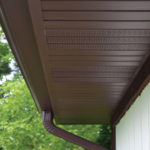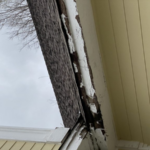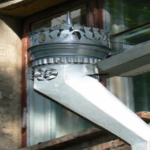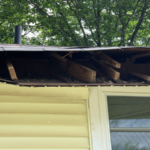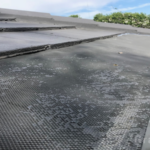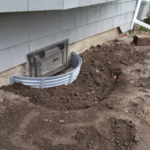If you have water in your basement, it is important to take action immediately to prevent further flooding and damage. Depending on the source of the water, you may be able to fix the problem yourself or you may need to call in a professional. If the water is coming from a broken pipe, you will need to shut off the water at the main valve and call a plumber. If the water is coming in from outside, you will need to check your gutters and downspouts to make sure they are clear and not blocked. You may also need to check for cracks in your foundation and seal them with concrete sealant.
Is a little water in the basement OK?
If you have a little water in your basement, it is probably ok. Water in your basement can come from a number of sources, including rain, melting snow, and even a broken pipe. If you have a sump pump, it should be able to handle a little water in the basement. However, if you have a lot of water in your basement, or if the water is coming in faster than the sump pump can handle, you should call a professional to help you solve the problem.
Is it normal to have some water in basement?
Most people have some sort of water in their basement, whether it’s a small puddle or a large pool. While a little bit of water is nothing to worry about, if you have a significant amount of water in your basement, it could be a sign of a serious problem. If you have water in your basement, you should contact a professional to determine the cause and to find a solution.
What to do if you find water in your basement?
If you find water in your basement, the first thing you should do is determine where the water is coming from. If the water is coming from a burst pipe, you will need to shut off the water to the entire house and call a plumber. If the water is coming in from outside, you will need to sandbag or otherwise block the water from coming in. Once you have stopped the water from coming in, you can begin to remove the water that is already in the basement. Use a wet/dry vacuum or a pump to remove the water. If the water is coming from a sewage line, do not try to remove the water yourself; call a professional. Once the water is removed, you can start to clean and disinfect the area.
Do all basements leak water?
No, not all basements leak water. In fact, many newer homes are built with basements that are designed not to leak water. However, older homes with basements are more likely to experience leaks, as the concrete or stone foundation may have cracks or other openings that allow water to seep in. Additionally, heavy rains or snowmelts can also cause water to leak into a basement. To prevent leaks, homeowners can seal any cracks in their basement foundation and make sure that their gutters and downspouts are clear and directing water away from the home.
Can water come up through concrete basement floor?
If your basement is prone to flooding, your best bet is to waterproof the concrete floor. But if you’re dealing with a small leak, there are a few ways to stop water from seeping through the concrete.
One way to stop water from coming up through the concrete is to seal the surface. You can use a waterproof sealant or a concrete sealer to create a barrier between the water and the concrete. This will prevent the water from seeping through the pores in the concrete and causing damage.
Another way to stop water from coming up through the concrete is to use a drainage system. This will redirect the water away from the concrete and into a drain or sump pump. This is a good option if you live in an area with a high water table or if your basement is prone to flooding.
If you have a small leak, you can also try to patch the hole in the concrete. This will stop the water from coming up through the hole and causing damage. You can use a concrete patch kit to fill the hole and seal it.
If you’re dealing with a large leak, you may need to replace the entire concrete floor. This is a big job, but it’s the only way to guarantee that the water will not come up through the floor and cause damage.
How much water is too much in basement?
If you have water in your basement, it is important to determine how much water is present and whether it is clean or dirty water. If the water is clean and is not more than a few inches deep, you may be able to remove it with a wet/dry vacuum. If the water is dirty or more than a few inches deep, you will need to pump it out.
If you have more than a few inches of water in your basement, it is important to pump the water out as soon as possible to prevent damage to your home and belongings. Depending on the amount of water, you may be able to pump it out yourself or you may need to hire a professional.
If you have more than a few feet of water in your basement, it is important to evacuate your home and contact your local utility company or emergency services. Flooding of this magnitude can pose a serious threat to your safety and the safety of your home, and it is important to get to a safe location as soon as possible.
Do most basements get wet?
Most basements are prone to getting wet due to the presence of a high water table or poor drainage around the foundation. However, there are ways to waterproof a basement to prevent it from getting wet.
Why is there water in my basement during heavy rains?
- Clogged gutters and downspouts: If your gutters and downspouts are clogged, they can’t effectively direct water away from your home, leading to water seepage.
- Poor drainage around your home: If the ground around your home is not properly graded or if there is insufficient drainage, water can pool near your foundation and seep into your basement.
- Cracks in your foundation: No matter how well your home is built, over time foundation cracks can develop. These cracks can allow water to enter your basement.
- Window wells: If you have window wells, they need to be properly installed and maintained to prevent water from seeping in.
If you’re experiencing water in your basement during heavy rains, it’s important to determine the cause so you can take steps to fix the problem and prevent future flooding.
How can you tell if a basement has water damage?
- Water stains on the walls or ceiling: This is a pretty obvious sign that there is water damage. If you see any brown or yellow stains on the walls or ceiling, it is likely that water has seeped in and caused damage.
- Musty smell: If your basement has a musty smell, it is likely due to water damage. When water seeps into materials like wood or drywall, it can cause them to rot and produce a musty smell.
- Peeling paint: Paint that is peeling or bubbling is another sign of water damage. When water seeps behind paint, it can cause the paint to peel or bubble.
- warped floors: If your basement floors are warped or cupped, it is likely due to water damage. When water seeps into the subflooring, it can cause the floors to warp or cup.
- Mold or mildew: Mold and mildew are both signs of water damage. If you see mold or mildew growing in your basement, it is likely due to water damage.
Last Word
No, you shouldn’t be worried about water in your basement. There are a few things you can do to prevent it, such as ensuring that your gutters are clear and that your downspouts are directed away from your home. If you do have water in your basement, you can use a sump pump to remove it.


